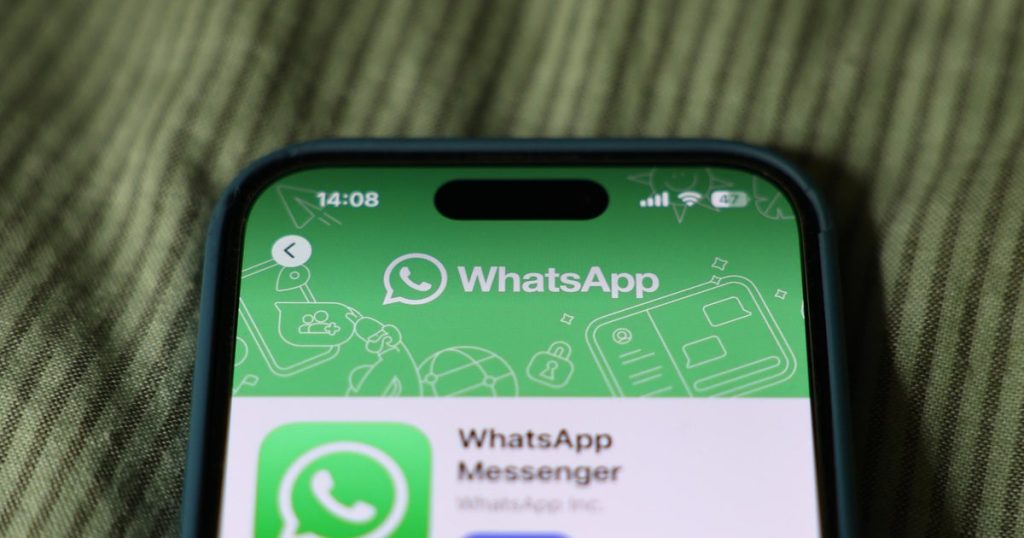The messaging platform WhatsApp expressed concern on Tuesday regarding its availability in Iran following warnings from state officials urging users to delete the application. Officials accused WhatsApp, along with Telegram and other services, of being tools for identifying and targeting individuals amid rising tensions between Iran and Israel. The situation has escalated as internet accessibility in Iran is reportedly diminishing, limiting public access to information during this critical time.
| Article Subheadings |
|---|
| 1) WhatsApp’s Concerns Over Iranian Censorship |
| 2) Iranian Government’s Claims and Actions |
| 3) Escalating Conflict: Israel and Iran |
| 4) Impact on Internet Accessibility |
| 5) Security Concerns Surrounding Encryption |
WhatsApp’s Concerns Over Iranian Censorship
WhatsApp has publicly voiced its apprehension about possibly being blocked in Iran. In a statement issued to the press, a spokesperson for WhatsApp emphasized the necessity of their services, particularly during periods of unrest when information is crucial for the public. The spokesperson stated,
“We’re concerned these false reports will be an excuse for our services to be blocked at a time when people need them the most.”
This statement highlights the platform’s commitment to user privacy, asserting that all messages exchanged on WhatsApp are protected by end-to-end encryption, allowing only the sender and recipient access.
Iranian Government’s Claims and Actions
The Iranian government’s recent actions find their roots in mounting tensions related to the geopolitical landscape and internal unrest. On state television, officials warned citizens against using WhatsApp and other location-based services, alleging that these applications are tools used by Israel for intelligence gathering. The warnings were echoed across various media platforms, portraying an image of a government keen to control the narrative at home, framing foreign apps as threats to national security. As tensions escalate between Iran and Israel, these claims serve as a pretext for imposing stricter internet regulations.
Escalating Conflict: Israel and Iran
The backdrop of rising tensions between Israel and Iran contributes significantly to the current situation regarding WhatsApp. The recent conflict saw Israel conducting airstrikes targeted at Iranian nuclear facilities and military leaders, with Iran retaliating with ballistic missile attacks. Reports indicate that at least two dozen individuals have been killed in Israel from these exchanges, while Iranian officials claim that over 224 casualties have occurred within their borders. The escalating violence, characterized by missile exchanges, sets a grim stage for public safety and information access amidst government warnings against specific applications.
Impact on Internet Accessibility
As the conflict deepens, Internet accessibility in Iran has drastically reduced, leading to significant communication barriers. NetBlocks, an internet monitoring organization, reported a startling 75% decline in internet usage throughout the nation. The drastic drop in connectivity not only hampers the public’s ability to stay informed but also raises alarm over potential government-mandated restrictions intended to suppress dissent. This situation underscores the critical need for reliable communication channels as people seek to organize and share information.
Security Concerns Surrounding Encryption
While WhatsApp touts its end-to-end encryption as a primary safeguard, the nature of digital security continues to be a subject of concern. The platform is owned by Meta, a company that has faced scrutiny for its handling of data privacy. Just a month ago, Israeli firm NSO Group was ordered to pay $167 million to WhatsApp for a hacking incident affecting 1,400 users, including journalists and activists. The incident involved the use of malicious software, raising questions about the effectiveness of encryption and highlighting vulnerabilities that foreign governments may exploit to surveil or target users. The lingering threat of digital espionage hangs over users, particularly in volatile regions like Iran.
| No. | Key Points |
|---|---|
| 1 | WhatsApp is concerned about being blocked in Iran following state warnings against its use. |
| 2 | Iranian officials cited national security threats associated with WhatsApp and similar applications. |
| 3 | Conflict escalation between Israel and Iran has significantly impacted public safety and information access. |
| 4 | Internet accessibility in Iran has plummeted, complicating public communication possibilities. |
| 5 | Concerns over security and encryption persist, especially following incidents of digital espionage targeting users. |
Summary
The unfolding events surrounding WhatsApp in Iran reveal the interplay between government control, geopolitical tensions, and the role of technology in communication. As the situation escalates, the Iranian populace faces significant challenges accessing reliable information and expressing dissent. Furthermore, the implications for internet freedom are a microcosm of larger global trends concerning digital privacy and security. The urgency for secure communication platforms in such environments cannot be overstated, highlighting a critical issue for both users and providers alike.
Frequently Asked Questions
Question: Why is WhatsApp concerned about potential blockage in Iran?
WhatsApp fears being blocked in Iran after governmental warnings labeled it as a tool for foreign surveillance, which could impede access to crucial communication services.
Question: What temporary measures has the Iranian government taken regarding internet usage?
The Iranian government has issued warnings against popular messaging platforms and imposed restrictions that have led to a significant reduction in general internet accessibility, impacting citizens’ capacity to communicate freely.
Question: How does end-to-end encryption affect user privacy on WhatsApp?
End-to-end encryption ensures that only the sender and recipient can access messages on WhatsApp, aiming to protect user privacy from unauthorized surveillance. However, ongoing concerns about security vulnerabilities remain.


